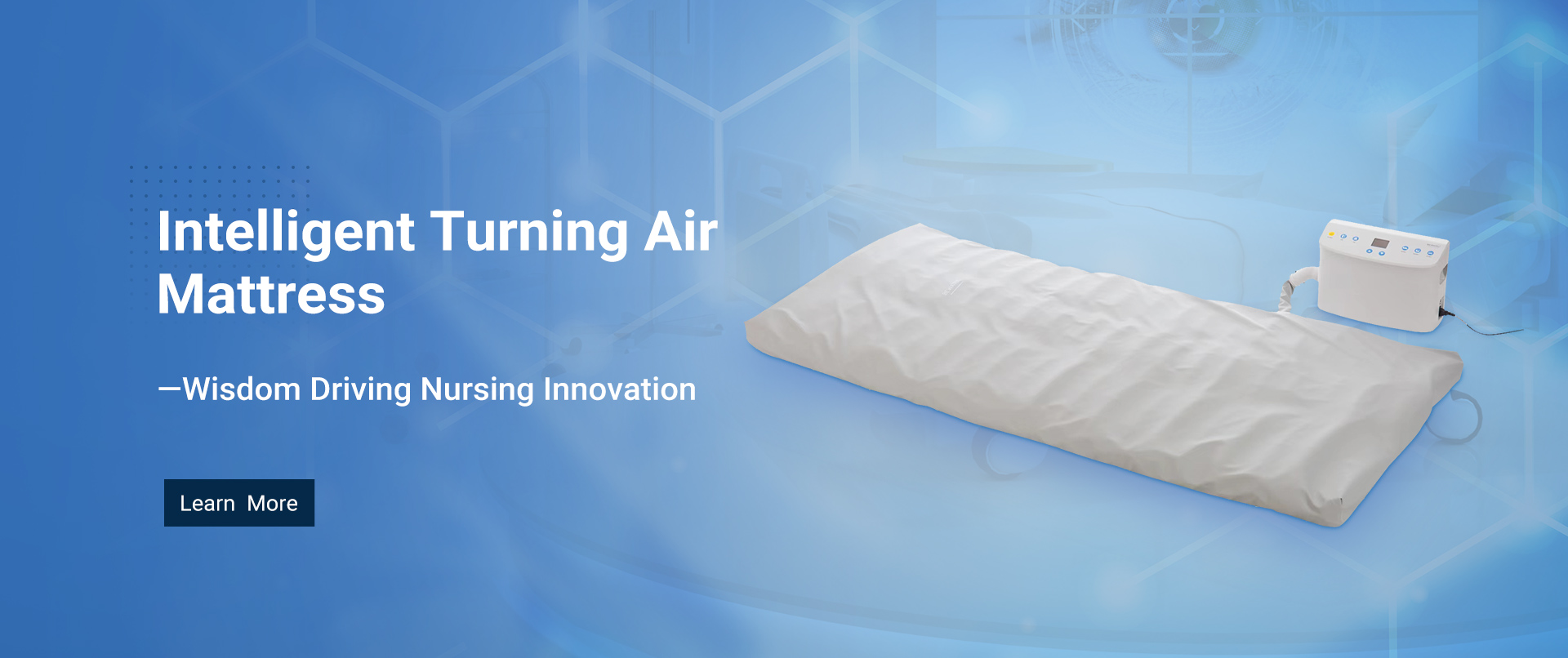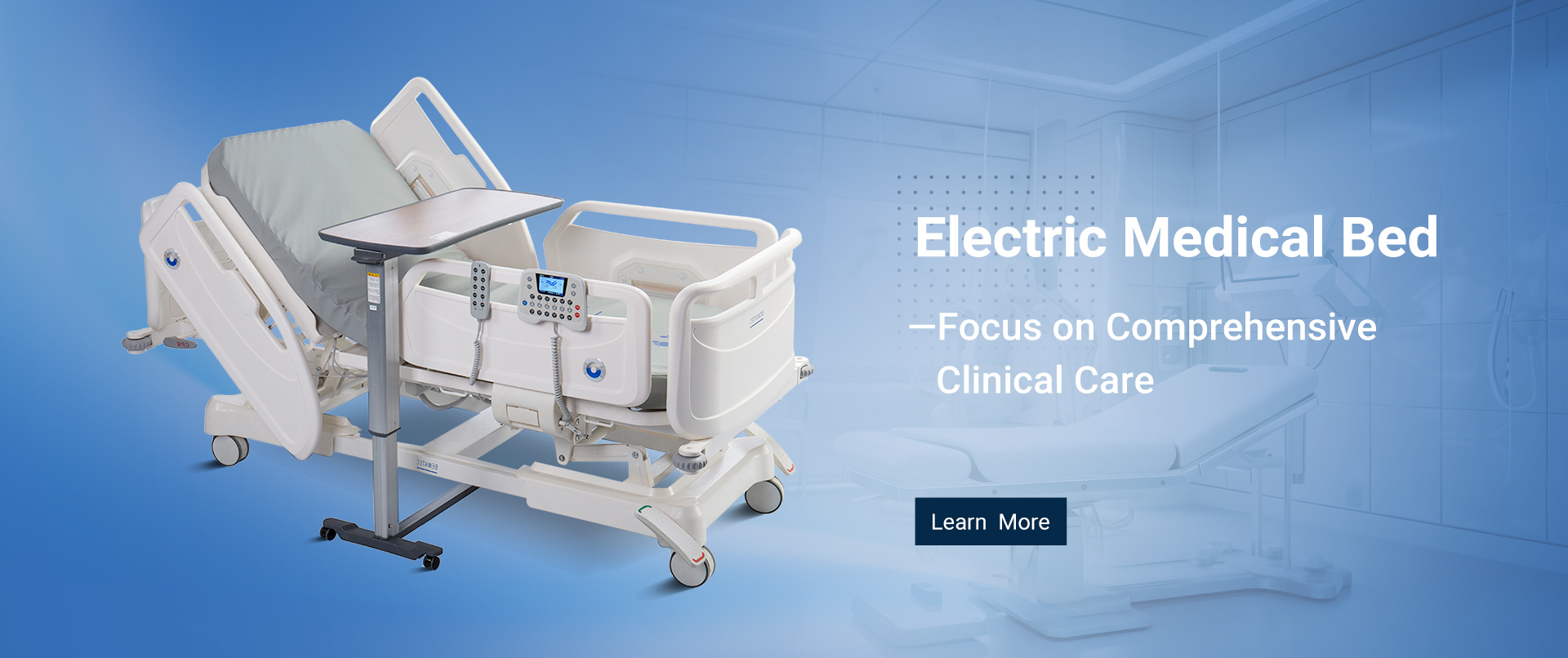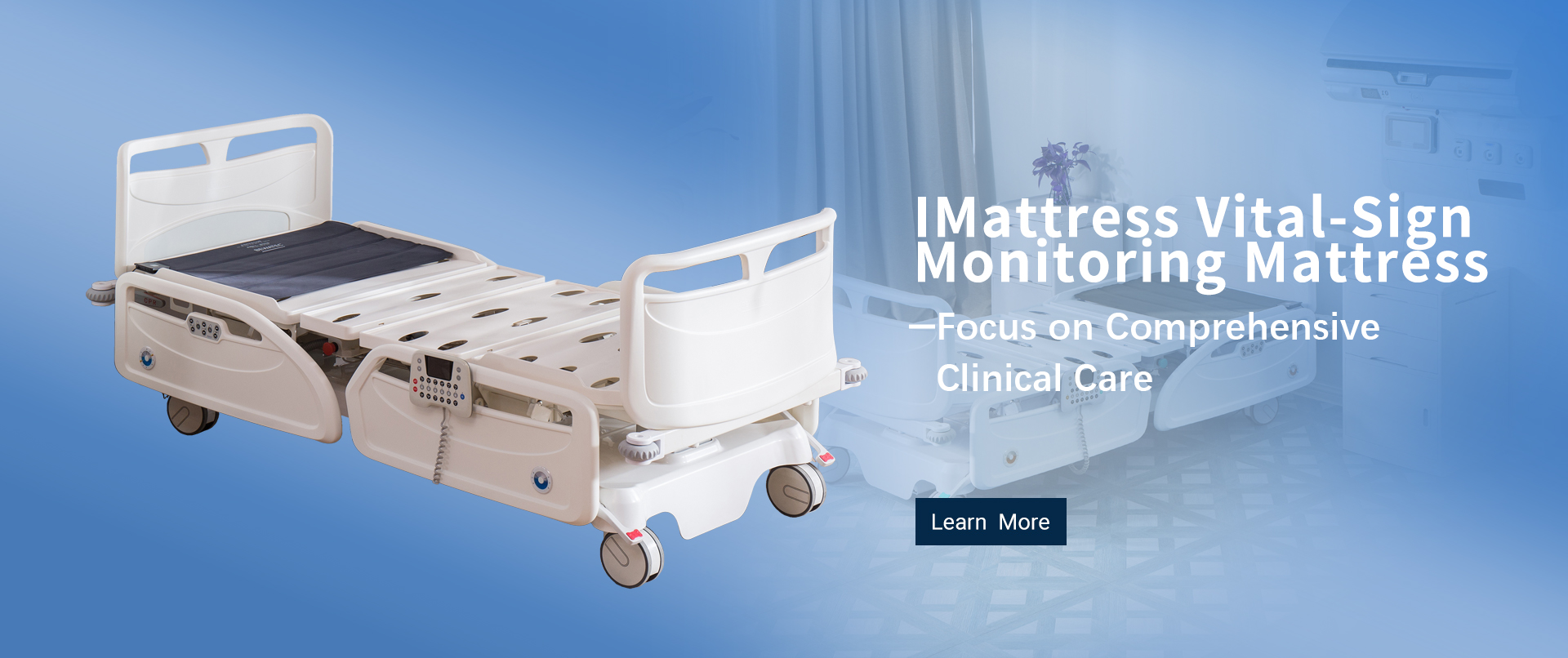
Future Innovations in IoT Sleep Health Solutions for 2025 and Beyond
Table of Contents
- Emerging Technologies in IoT for Enhancing Sleep Quality
- The Role of AI in Personalizing Sleep Health Solutions
- Smart Mattresses: The Future of Restful Sleep Experiences
- Data Security and Privacy in IoT Sleep Health Innovations
- Collaboration Between Tech Giants and Health Experts for Sleep Wellness
- Trends and Predictions for the Future of Sleep Health in 2025 and Beyond
- Enhancing Comfort and Safety: Exploring the Iaso Series Two-Function Manual Bed with HDPE Siderails
- FAQS
- Related Posts
As we get closer to 2025, we're really gearing up for a big shift in how we tackle sleep health solutions, all thanks to IoT technology. You know, sleep disorders are no small issue—around 30% of people worldwide struggle with them, according to the World Health Organization. That really highlights how crucial it is to have effective management tools right now.
So, there’s this company called Bewatec (Zhejiang) Medical Device Co., Ltd. They're actually leading the way in smart medical care, and they totally get what’s needed in the market. They're all about using digital technologies to make the patient experience better.
By rolling out their IoT-Enabled Sleep Health Solutions, Bewatec is aiming not just to provide a comfy and tailored healthcare journey, but also to help tackle the broader societal issues we face with sleep-related health problems. With the advancements in IoT, we can look forward to some pretty cool innovations that will help us monitor and analyze our sleep patterns, allowing us to take a proactive approach to keeping our sleep health in check rather than just reacting when things go wrong.

Emerging Technologies in IoT for Enhancing Sleep Quality
Looking ahead to 2025 and beyond, it’s pretty clear that the whole intersection of IoT and sleep health is becoming a big deal. I mean, these cool new technologies are set to totally change how we think about and improve our sleep quality. Think about it: we’re seeing advanced sensors and smart devices pop up that can keep tabs on different aspects of our sleep cycles, our breathing patterns, and even what's going on in our bedrooms. This is all leading to some actionable insights that could really help us tweak our sleep habits for the better.

So, if you're looking to optimize your sleep space with IoT gadgets, one great move is to invest in a smart mattress that adjusts its firmness depending on how you’re positioned and what stage of sleep you’re in. And don't forget about those sleep apps! They can track your patterns and help you spot where you might need to make some changes. Plus, think about adding smart lighting that dims automatically as bedtime rolls around—it can really help set the scene for a good night's sleep.
On top of that, we can’t overlook wearable tech, which is really making waves when it comes to sleep health. Devices like sleep trackers give you the lowdown on your sleep quality, letting you make those informed tweaks to your nighttime routine. By weaving these nifty IoT innovations into our daily lives, we can boost our overall well-being and set ourselves up for better sleep in the future. Who wouldn’t want that?
The Role of AI in Personalizing Sleep Health Solutions
You know, the way AI is getting into sleep health solutions is really shaking things up when it comes to our personal well-being. Crazy to think that the global sleep aid market might hit around $2.33 billion by 2025 and could even go up to $3.30 billion by 2033! That's a solid growth rate of about 3.3%. So, with more companies jumping on the AI bandwagon to boost our sleep experiences, it's like we're seeing a big change here. We're moving towards cozy, personalized solutions that really fit our individual needs. Just look at those new AI-powered sleep products that have come out recently—they're all about using fancy algorithms to help us catch better z's and tackle issues like insomnia that so many people face these days.
Want to up your sleep game with AI tools? Here are a few tips:
1. Check out smart sleep aids that can track your sleep patterns and give you recommendations to sleep more soundly.
2. Try out AI-driven apps that guide you through relaxation techniques and offer calming sleep sounds, creating the perfect vibe for snoozing.
3. Keep an eye on your sleep data so you can spot trends and tweak your nighttime routine for the best results.
As we dive deeper into the digital age, it seems like tech and sleep health are teaming up more and more, which is driving some awesome innovations to help us sleep better. By 2025, this whole collaboration between AI and sleep health isn’t just going to change the industry; it’s going to empower us all to improve our sleep hygiene. And with so many of us waking up to how important sleep is for our overall health, it’s clear that these cutting-edge tools will play a crucial role in how we wind down each night.
Future Innovations in IoT Sleep Health Solutions for 2025 and Beyond
Smart Mattresses: The Future of Restful Sleep Experiences
As we venture into 2025 and beyond, the landscape of sleep health solutions is set to transform dramatically, with smart mattresses leading the charge. These cutting-edge sleep innovations leverage Internet of Things (IoT) technology to enhance sleep quality, offering personalized experiences tailored to individual needs. According to a report by ResearchAndMarkets, the smart mattress market is expected to surpass $2 billion by 2025, driven by increasing consumer awareness about sleep health and the integration of advanced technologies.
Smart mattresses utilize sensors to monitor vital signs, including heart rate and breathing patterns, providing users with valuable insights into their sleep patterns. A study from the National Sleep Foundation highlights that 75% of adults experience sleep issues, underscoring the growing demand for solutions that promote better rest. By incorporating features such as temperature control, sleep tracking, and adjustable firmness, these mattresses not only enhance comfort but also support overall well-being. As innovation continues, smart mattresses are poised to become indispensable tools for achieving restorative sleep in an increasingly fast-paced world.
Data Security and Privacy in IoT Sleep Health Innovations
You know, as the Internet of Things (IoT) keeps shaking things up in healthcare, we're seeing some pretty cool advancements in sleep health too. There are all these smart devices popping up that promise to help us get better sleep. But here's the catch— relying so much on tech to track how we sleep brings up some serious concerns about our data security and privacy. It's totally understandable that folks are worried about who’s snooping on their sleep data and how it’s being used. This definitely puts pressure on manufacturers to make sure their devices are secure.

For those innovators diving into the IoT sleep health scene, they really need to step up their game with strong encryption methods and stick to solid data governance rules. People need to know their information is safe, right? Plus, it’s super important for companies to make consent guidelines clear and easy to access—users should feel in control over what data they’re sharing and with whom. After all, sleep health data can really expose personal aspects of our lives and health. So, being transparent about how data is handled and implementing strong security measures isn’t just a good practice; it’s essential for building trust. If we want people to embrace these new technologies, we gotta strike a balance between innovation and privacy. Moving forward, the success of IoT sleep health solutions hinges on keeping user confidentiality intact while still pushing the envelope of what's possible.
Collaboration Between Tech Giants and Health Experts for Sleep Wellness
Looking ahead to 2025 and beyond, it’s really exciting to see how the collaboration between tech giants and health experts is set to shake things up in the world of sleep wellness. A recent report from the Global Sleep Health Foundation has some pretty eye-opening stats—did you know over 70 million Americans struggle with sleep issues? That really shows how urgent it is to come up with innovative solutions for managing sleep health. Companies like Bewatec (Zhejiang) Medical Device Co., Ltd. are stepping up to the plate, working to connect technology with healthcare, so patients can get personalized digital care that really fits their unique sleep needs.
These tech companies are teaming up with health professionals more than ever to create smart devices that use real-time data analytics to improve sleep monitoring. For example, we’re seeing some cool stuff happening with wearable tech and smart home systems. This combo has the potential to deliver some serious sleep health solutions that not only track sleep patterns but also consider environmental factors that might be messing with our rest. It’s a game-changer! This new landscape is all about empowering patients to take charge of their health journey. Plus, healthcare providers are getting valuable insights from these tools, which ultimately enhances sleep wellness and boosts overall quality of life.
With a strong focus on digital transformation in healthcare, Bewatec is right in the thick of it, leading the way as the industry shifts toward more advanced and tailored care pathways. It’s an exciting time to watch!
Trends and Predictions for the Future of Sleep Health in 2025 and Beyond
Looking ahead to 2025 and beyond, it really feels like sleep health and IoT technology are gearing up to totally change the game when it comes to our sleep wellness. One of the coolest trends is the rise of smart sleep environments. I mean, think about it—these IoT devices can create personalized settings to help us get better rest. We're talking about stuff like adjustable lighting and temperature controls, plus sound machines that actually respond to how we sleep! All these innovations are aimed at boosting our overall sleep experience, making it way easier for us to nod off and stay in dreamland.
And you know what? Predictive analytics driven by machine learning is really going to shake things up in the sleep health space. These devices won’t just watch our sleep patterns; they’ll dig into the data and give us practical tips that fit our habits and needs. If they spot any irregularities or disruptions in our sleep, these smart solutions could suggest tweaks, like changing up our bedtime routine or trying out some relaxation techniques. In the end, the future of sleep health tech looks super promising—it's all about enhancing our quality of life and making sure that everyone can access better sleep.
Enhancing Comfort and Safety: Exploring the Iaso Series Two-Function Manual Bed with HDPE Siderails
The Iaso Series Two-Function Manual Bed with HDPE Siderails represents a significant advancement in hospital bedding solutions, focusing on enhancing both comfort and safety for patients. One of the standout features of this bed is its dual-function design, which allows for effortless adjustments to support different care needs. Whether it's elevating the head or foot of the bed, this flexibility ensures that patients can find a comfortable position that alleviates discomfort while allowing for necessary medical treatments.
In addition to its adjustable capabilities, the Iaso Series bed integrates multiple protection features, addressing the essential safety requirements in hospital settings. The HDPE siderails are not only durable but also designed to prevent accidental falls, giving caregivers peace of mind while attending to their patients’ needs. This manual bed provides fundamental nursing functions that are crucial in meeting the daily demands of healthcare facilities. By combining comfort, safety, and functionality, the Iaso Series bed is an ideal choice for enhancing patient care.
FAQS
: Smart mattresses utilize IoT technology to monitor vital signs such as heart rate and breathing patterns, providing users with insights into their sleep patterns. They also offer features like temperature control, sleep tracking, and adjustable firmness to enhance comfort and well-being.
The demand for smart mattresses is driven by increasing consumer awareness about sleep health, with 75% of adults experiencing sleep issues according to a study by the National Sleep Foundation. These mattresses offer personalized solutions to promote better rest.
The smart mattress market is expected to surpass $2 billion by 2025, as innovations continue to enhance sleep experiences and address rising consumer needs for improved sleep quality.
Users are concerned about who collects their sleep data and how it’s used. Therefore, manufacturers need to implement secure protocols, robust encryption, and clear consent mechanisms to protect personal information.
Innovators should adopt stringent data governance frameworks, ensure transparency in data handling, and allow users to control what data they share to build trust and encourage acceptance of smart sleep technologies.
Predictive analytics powered by machine learning will analyze sleep data to provide actionable insights, detect irregularities, and suggest timely recommendations to improve sleep habits.
Emerging trends include the development of smart sleep environments that integrate adjustable lighting, temperature controls, and sound machines, enhancing the overall sleep experience.
By improving sleep quality through personalized features and insights, smart mattresses are poised to contribute positively to users' overall well-being and quality of life.
Future smart sleep environments are expected to leverage IoT devices for personalized settings that facilitate easier falling and staying asleep through responsive adjustments based on individual sleep patterns.
Related Posts













